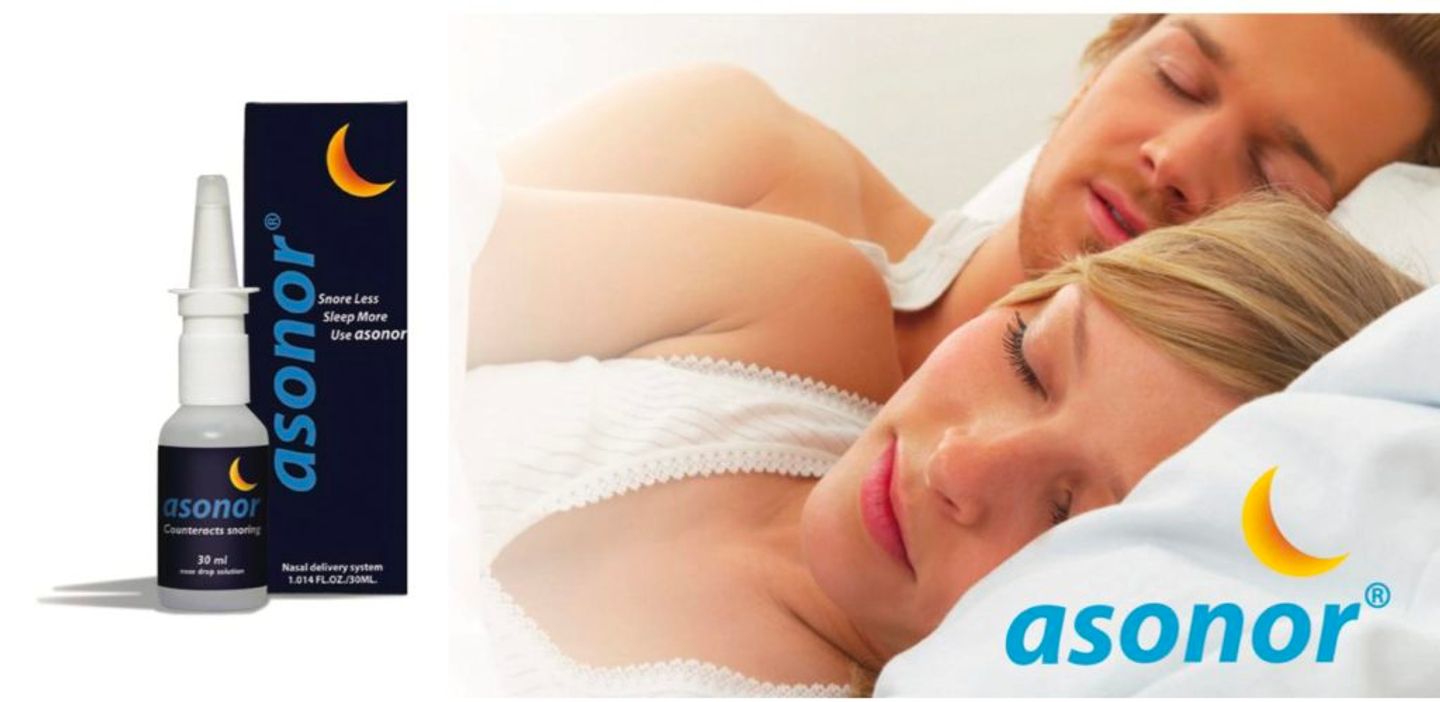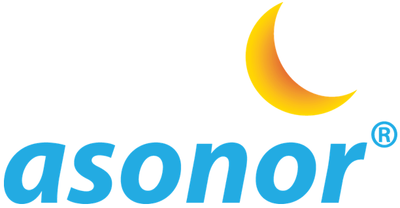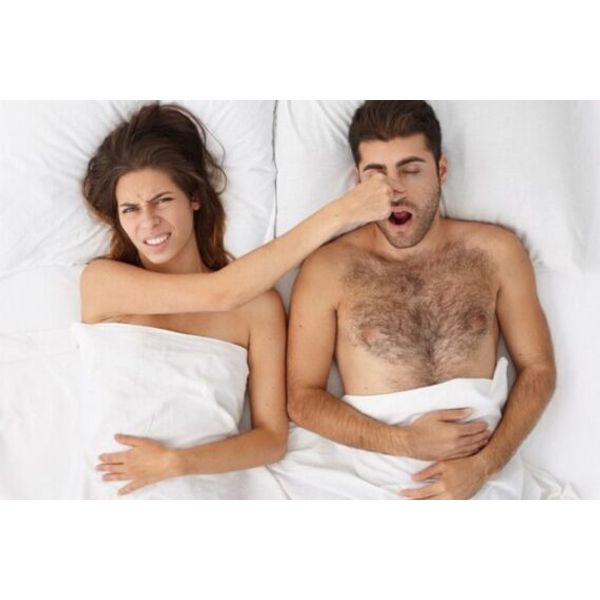

- Home
- Companies
- TannerMedico A/S - Asonor
- Articles
- Benefits of Using Mouth Guards for ...
Benefits of Using Mouth Guards for Sleep Apnea Treatment
Millions of people are affected by sleep apnea that is a sleep disorder, characterized by disrupted breathing when asleep. Sleep apnea leads to cardiovascular issues, chronic fatigue, daytime drowsiness and poor cognitive functioning. Additionally, the sleep deprivation that sets in with time leads to irritability and mood swings, affecting your day-to-day functioning and quality of life.
Continuous Positive Airway Pressure (CPAP) therapy is considered to be the gold-standard treatment for sleep apnea. Most patients are difficult to use as they find it uncomfortable to use during sleep. Due to the ease of use and affordability, mouth guards or other oral appliances have emerged as an effective alternative therapy for those with mild or moderate sleep apnea.

To understand the treatment options of sleep apnea, understanding the sleep disorder is important. Obstructive Sleep Apnea happens when the muscles of the throat relax, causing the airway to narrow, while the tongue falls back into the throat, partially blocking it. That tends to cause difficulty in breathing and there are frequent pauses for a few seconds to over a minute multiple times at night. Some of the frequent symptoms include:
- Loud snoring
- Problems in concentrating
- Choking/gasping during sleep
- Morning headaches
- Difficulty concentrating
- Depression
- Irritability
- Daytime drowsiness
If you ignore the issues, sleep apnea is a harbinger of high blood pressure, stroke and heart disease. That is why it is important to get it all evaluated by a medical professional.
Specific designed oral appliances, mouth guards or Mandibular Advancement devices (MADs) and tongue-retaining devices (TRDs). These oral appliances are custom-tailored to fit the individual’s mouth when they sleep to ensure that the jaw stays in place or the tongue does not fall into the mouth, during sleep.
As per research published in Journal of Clinical Sleep Medicine (2014), the “Oral Appliance Treatment for Obstructive Sleep Apnea: An Update” by Sutherland K, Vanderveken OM and their team, showed that oral appliances helped in reducing the effects of sleep apnea in clinical trials. Remotely positioned mandibular devices can help doctors figure out, in just one night of sleep testing, who will benefit from the treatment and how much jaw adjustment is needed for it to work well.
Basically, mouth guards work by repositioning the tongue and the jaw, so that the airway does not collapse due to a blockage. It helps keep sleep apnea at bay or ay least improves breathing and reduces the symptoms of OSA.
This is one of the most common types of oral devices used to stop snoring. It works on the lower jaw by pushing it forward. That helps to tighten the tissue and muscles in the upper airway and that lowers the risk of obstruction. It is customized for your jaw for higher effectiveness and comfort. This reduces snoring, which is one of the main symptoms of sleep apnea.
Though these are used less, but are effective for those individuals that have larger tongues. As they cannot use Mandibular Advancement devices with ease, tongue retainers work better. The TRDs are used to hold the tongue forward with the use of suction and that prevents it from falling backward into the throat. This is one of the main reasons for snoring and leads to the breathing pauses in sleep apnea.
Non-invasive:
This is one of the major advantages of using mouth guards and other oral appliances that it is completely non-invasive and comfortable. These are lightweight, small and worn inside the mouth, very different from using the CPAP device, which requires you to wear a face mask to get the pressurized air directly into the nostrils. Thus, people tend to use mouth guards and other oral appliances more than using a CPAP machine.
Works Effectively for Mild to moderate OSA:
Oral appliances such as mouth guards may not be suitable for people with severe sleep apnea, but for those with mild and moderate sleep apnea, many studies have shown that there is a reduction of number of apnea episodes at night. With the use of mouth guards, you breathe better and the oxygen saturation levels are maintained. With better daytime energy and alertness levels, your productivity increases and get to sleep better.
Stop snoring:
Snoring is the first sign of sleep disorder. Whether you are able to completely stop snoring or your snoring is reduced, mouth guards can help keep the tongue and jaw in alignment, helping stop the partial blockages that are created by loose muscles and soft tissues. These oral aids help to stabilize the nasal passages and airways, helping you breathe better.
Convenience:
As oral devices including mouth guards are easy to carry and use, it is the best solution for those that travel frequently, making it the right alternative to CPAP devices, as these are bulky. Additionally, with mouth guards, there is no requirement for batteries, fits into a small case and can be cleaned easily.
More About Side Effects:
Although CPAP therapy is effective, it has a multitude of side effects such as nasal dryness, skin irritation, constant noise of the machine and for those that are claustrophobic, it can be distressing. Though some people experience dental discomfort, soreness of the jaw and dry mouth when using mouth guards and other oral appliances. However, these are mild and are often experienced when you start using it and tend to resolve as you get used to the device.
Increased adherence rate:
Most sleep apnea patients leave CPAP therapy, due to discomfort or claustrophobia. While it has been seen that there is long-term adherence to oral appliances when custom fitted by a dental specialist. These patients have significant more likely to continue treatment.
Less expensive to use:
The initial cost of oral appliances cost about $1,000 to $2,500 which is less than the cost of CPAP therapy. That includes mask and hose maintenance, equipment replacement, regular supplies and electricity usage.
It is essential to find differences between OTC and custom fitted appliances before you invest in it –
- Over-the-Counter: These are one-size to fit all mouth sizes so it might be cheaper than the custom-fit but can be uncomfortable. It may not be as effective as it does not specifically fit your mouth.
- Custom fit oral appliance: These are specifically made for your mouth and are more comfortable to wear. It is crafted by a dentist and ensures that it si durable and effective.
Thus, for treating sleep apnea, a serious health condition, experts always recommend a customized mouth guard so that it can improve your symptoms and reduce snoring effectively.
